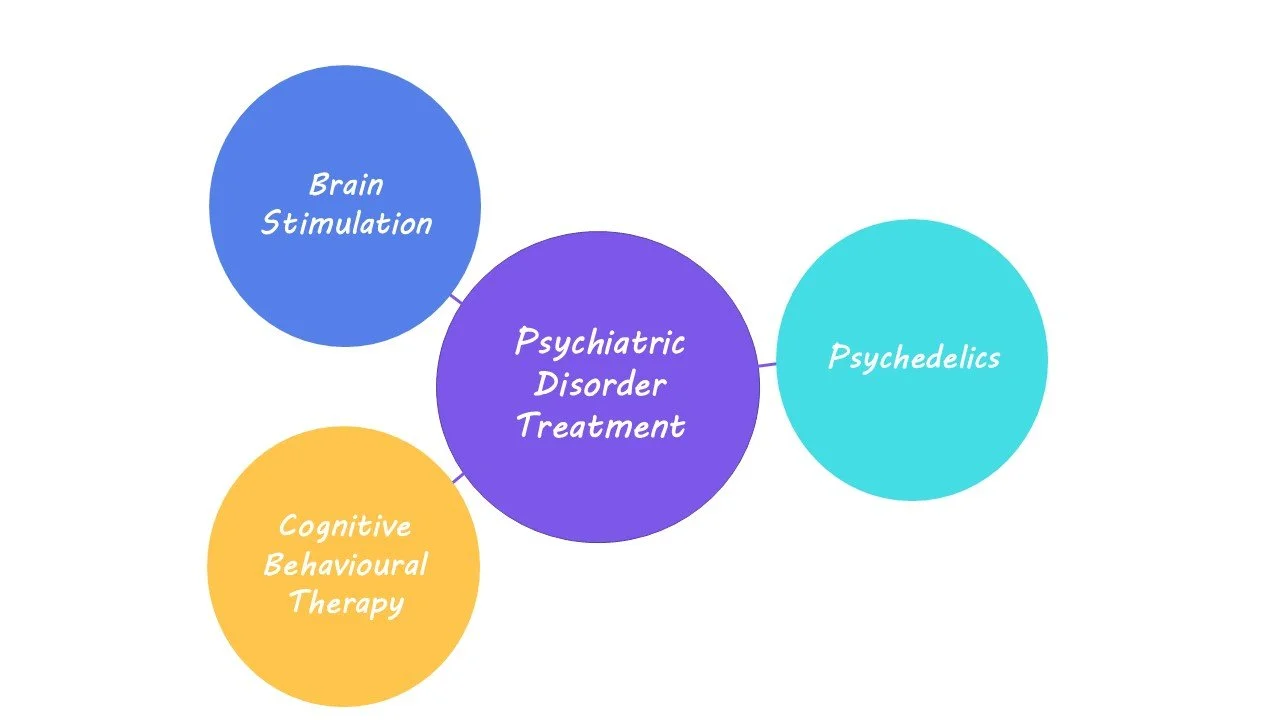Alternative Therapies for Psychiatric Illness
Post by Leanna Kalinowski
What did we learn?
Research in 2021 took a step away from traditional therapies for psychiatric illness and towards transformative new techniques. First, we saw an increased benefit of incorporating technology into therapy. For example, the clinical benefits of personalized neuromodulation were uncovered when Grover and colleagues tested the effectiveness of non-invasive electrical brain stimulation on obsessive-compulsive behaviors. New technology, such as virtual reality, also showed promise this year when used as a delivery system for cognitive-behavioral therapy. Second, we saw an increased recognition of psychedelics as potential treatments for psychiatric disorders. For example, Shao and colleagues found that a single dose of psilocybin reduces depressive symptoms and triggers synaptic changes in the brain. Other psychedelics, such as mescaline, LSD, and MDMA, also show promise in treating disorders such as anxiety and PTSD.
What's next?
This research paves the way in better understanding how alternative techniques can be leveraged to (1) improve previously existing therapies or (2) develop new therapies for psychiatric disorders. Future research in 2022 will hopefully deepen our understanding of these techniques, and further establish their efficacy through clinical trials.

